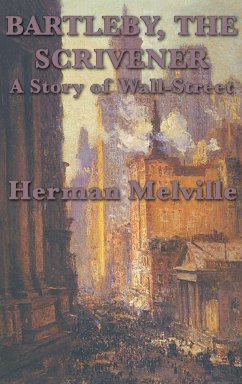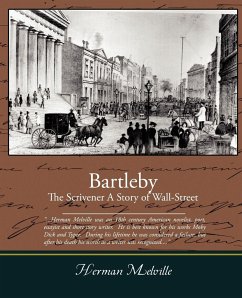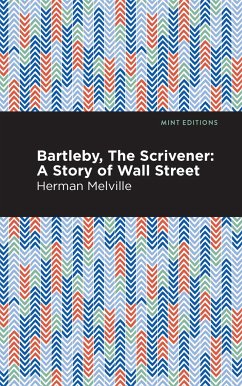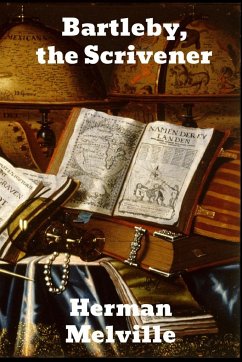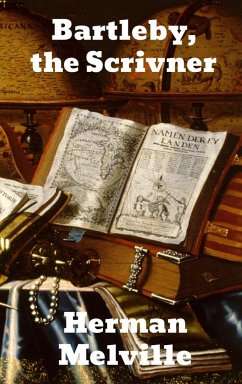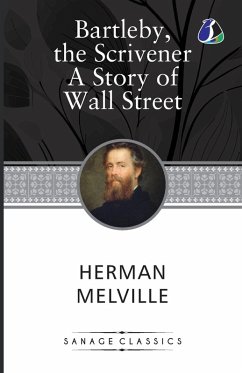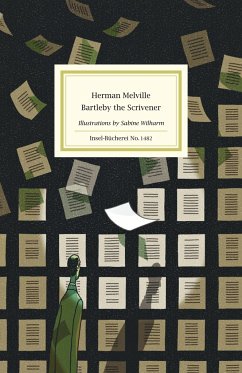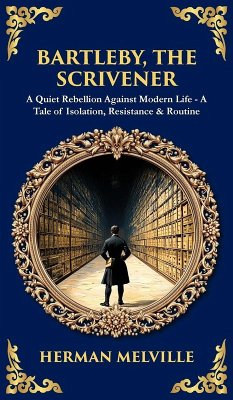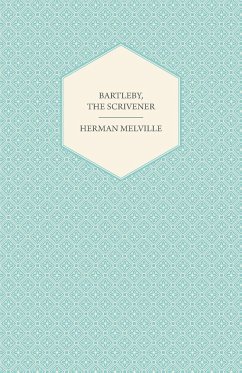
Bartleby, The Scrivener A STORY OF WALL-STREET
Versandkostenfrei!
Versandfertig in 1-2 Wochen
17,99 €
inkl. MwSt.
Weitere Ausgaben:

PAYBACK Punkte
0 °P sammeln!
"Bartleby, the Scrivener" by Herman Melville is a poignant and enigmatic quick story that explores the complexities of human behavior and the dehumanizing effects of current office existence. The narrative is provided through the angle of an unnamed narrator, a Wall Street attorney who employs Bartleby as a scrivener, or copyist. Bartleby, first of all a diligent and efficient employee, surprises the narrator and co-workers through responding to paintings requests with the phrase "I would select no longer to." As Bartleby an increasing number of withdraws from the needs of his activity, his pa...
"Bartleby, the Scrivener" by Herman Melville is a poignant and enigmatic quick story that explores the complexities of human behavior and the dehumanizing effects of current office existence. The narrative is provided through the angle of an unnamed narrator, a Wall Street attorney who employs Bartleby as a scrivener, or copyist. Bartleby, first of all a diligent and efficient employee, surprises the narrator and co-workers through responding to paintings requests with the phrase "I would select no longer to." As Bartleby an increasing number of withdraws from the needs of his activity, his passive resistance demanding situations the traditional expectancies of the place of work. The narrator grapples with how to deal with Bartleby's unconventional conduct, leading to a series of tries to apprehend and accommodate him. The tale unfolds as a meditation on empathy, isolation, and the human circumstance in an industrialized society. Herman Melville, pleasant acknowledged for his novel "Moby-Dick," showcases his narrative mastery in this exploration of the alienation and dehumanization inherent in the place of job. "Bartleby, the Scrivener" stays a traditional of American literature, celebrated for its psychological depth, diffused humor, and incisive critique of societal norms. The character of Bartleby has come to be a long lasting image of resistance and existential contemplation in the face of conformity.





